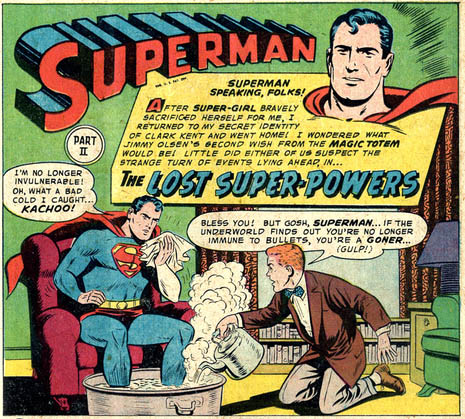
Via Wired, a new study on the relationship between belief in free will and basic motor skills finds that, apparently, “disbelieving free will makes brain less free.” Illustrating the key difference a title/interpretation can make, Lifehacker reports on the same article saying, “believing in free will gives you more power to take action.” Hmmm…. It also appears to make a person slower on the draw. I suppose the real question is whether that split second of deliberation actually makes any difference in the eventual action taken. Not to mention, of course, the content of the passage in question, e.g. whether it’s espousing a blanket/nihilistic determinism or, say, a belief in a will more powerful (and benevolent) than one’s own. Interesting, ht SZ & JD:
“Our results indicate that beliefs about free will can change brain processes related to a very basic motor level,” wrote researchers led by psychologist Davide Rigoni of Italy’s University of Padova in a study published in May’s Psychological Science.
Rigoni’s team asked 30 people to read passages from Francis Crick’s 1994 book The Astonishing Hypothesis: The Scientific Search for the Soul. Half read a passage that didn’t mention free will, while the others read a passage describing it as illusory. All were hooked to electroencephalograph machines that monitored electric activity known as “readiness potential,” which is linked to the neurological computations that occur in the milliseconds before voluntary movement.
The test subjects were then asked to press a mouse button when a cursor flashed on a computer screen for several seconds. Those who read the passage dismissing free will displayed significantly lower readiness potentials. Their actions seemed to involved less voluntary control than the control group’s.
Tested on when they decided to press the button, the non-free-will group reported doing so a fraction of a second before their counterparts. To lose confidence in free will seemingly introduced a lag between conscious choice and action.
The latest findings extend the effects of disbelieving to a more basic physical level. Whether there’s a relationship between free will, motor activity and more complex behaviors is yet to be determined, but “abstract belief systems might have a much more fundamental effect than previously thought,” wrote the researchers.
[youtube=http://www.youtube.com/watch?v=Yob_JHwsC4w&w=600]

COMMENTS
Leave a Reply













